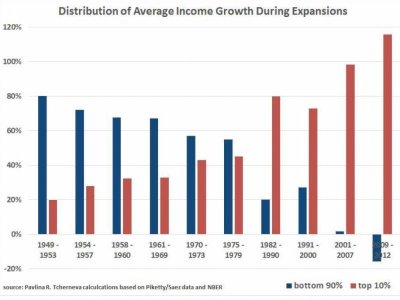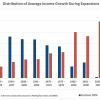Nonsense. The biggest factor impeding new business is the increasing regulatory
http://www.sba.gov/advocacy/impact-regulatory-costs-small-firms. Here is a study by the US Small Business Administrationhttp://www.sba.gov/advocacy/impact-regulatory-costs-small-firms
Here is part of the summary; "The annual cost of federal regulations in the United States increased to more than $1.75 trillion in 2008. Had every U.S. household paid an equal share of the federal regulatory burden, each would have owed $15,586 in 2008. By comparison, the federal regulatory burden exceeds by 50 percent private spending on health care, which equaled $10,500 per household in 2008. While all citizens and businesses pay some portion of these costs, the distribution of the burden of regulations is quite uneven. The portion of regulatory costs that falls initially on businesses was $8,086 per employee in 2008. Small businesses, defined as firms employing fewer than 20 employees, bear the largest burden of federal regulations. As of 2008, small businesses face an annual regulatory cost of $10,585 per employee, which is 36 percent higher than the regulatory cost facing large firms (defined as firms with 500 or more employees)."
Remember this the next time you wonder why jobs are being out sourced, and this is just one reason among many. The US government is anti business.


























